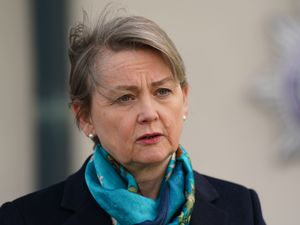COMMENT: Boris Johnson’s great gamble on HS2 rail project
When approval for HS2 was granted in 2010, its budget was £30 billion and work on it was expected to start within a couple of years.
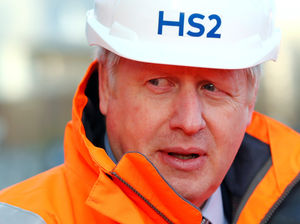
A decade later and the figure has gone up to £43bn, then £56bn – its “only” budget according to ministers last year – then to £88bn.
An official government review suggests it is now likely to cost £106bn, although even that may underestimate a final bill which critics suggest could reach more than £230bn. Not one inch of track has yet been laid.
HS2’s spiralling budget, the fact that it is years behind schedule, as well as the damage to the environment and disruption to local communities in its path, all contribute to making the case against the line a compelling one.
Vote in our poll:
By giving the green light to HS2, Boris Johnson has taken a calculated risk which he has known for a long time will infuriate Conservative MPs in some of the party’s heartlands.
Lichfield MP Michael Fabricant is one such critic of the line, arguing that problems with the design of the project meant it would not meet its initial aims.
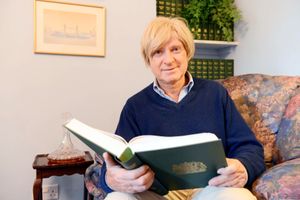
He said the decision to back HS2 in its current form represented a “missed opportunity” to improve it and make it an integrated high-speed line, similar to the one running in continental Europe.
“In Birmingham, for example, the HS2 arrives at a standalone station so it is not possible to change platforms onto other lines,” he said.
“Nor does it connect with Eurostar and the continent.”
These flaws, he said, would prevent it from meeting the “original dream” of being a realistic alternative to flying.
He added that continental high-speed lines mainly used existing transport corridors but “on the whole” HS2 does not.
“Scoring a path through previously undamaged countryside – over 100 ancient woodlands will be damaged or destroyed – and in my own Lichfield constituency the environmental damage will be immense,” he said. “This is all very disappointing.”
The reason given for this is that feasibility studies showed there simply isn’t the room for HS2 to run alongside the existing West Coast Main Line, nor the capacity for it on the current route, nor is the ground suitable at present for such a use.
Undoubtedly, Mr Johnson’s fondness for ambitious infrastructure projects has contributed greatly to his decision.
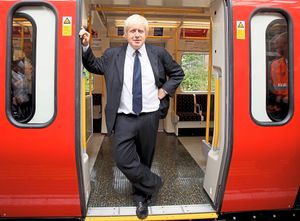
As has the support from many of his newly-elected MPs, although accusations abound in Tory circles that many of them have backed a project they are privately unsure about through fear of being seen as a disruptive influence.
The splits within the Tory party over the project were laid bare when the issue came up at Prime Minister’s Questions in January, with supportive Conservatives jeered by anti-HS2 colleagues as they spoke.
Mr Johnson met with Tory MPs from the north and the Midlands last week, with the likes of Stone MP Sir Bill Cash giving pitches setting out his opposition to HS2.
Meanwhile many of the project’s opponents have tapped in to the growing public revolt over the railways in Britain – some would prefer local and regional transport schemes to be prioritised over HS2.
Measures are in place to cater for these demands, with West Midlands Mayor Andy Street – one of HS2 ‘s biggest cheerleaders – among those pushing for better local public transport networks.
His recent pledge to spend £15bn on reopening disused rail lines and stations ties in with this view.
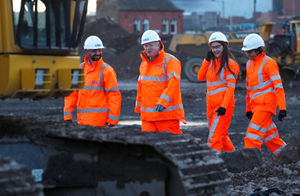
As does Transport Secretary Grant Shapps’ suggestion that £500 million could be spent on reversing the Beeching cuts, which saw dozens of branch lines closed down in the 1960s – although this figure could be short of the sum required to achieve this ambitious goal.
Tellingly, the Prime Minister’s HS2 announcement came alongside a £5bn pledge on buses and cycle routes – a move seemingly intended to silence critics who argue that high-speed rail will drain funding from other priorities.
Despite green lighting the project, it is clear that Mr Johnson is not sold on HS2. That was shown in an interview with 10-year-old Braydon Bent in January – reversing former chancellor Dennis Healey’s “first law of politics” that “when you’re in a hole, stop digging”.
There had been “profligate” and “hopeless” management at HS2 and the situation was a “mess”, Mr Johnson said. But, he added: “In a hole the size of HS2, the only thing to do is keep digging.”
With his general election landslide built on a promise to “level up” parts of the country that feel they have been ignored by Westminster, the Prime Minister knows he has to commit to major investment in schemes to boost the economy outside London and the South East.
Yet there is no guarantee that HS2 will do so in the West Midlands, despite supporters’ claims that it will create thousands of new jobs.
When it came down to it, Boris Johnson felt that turning back simply wasn’t an option after more than £8bn has already been spent on preparatory work.
However, the PM will be acutely aware that the public are unlikely to get behind HS2 unless the wretched performance of local services improves.




